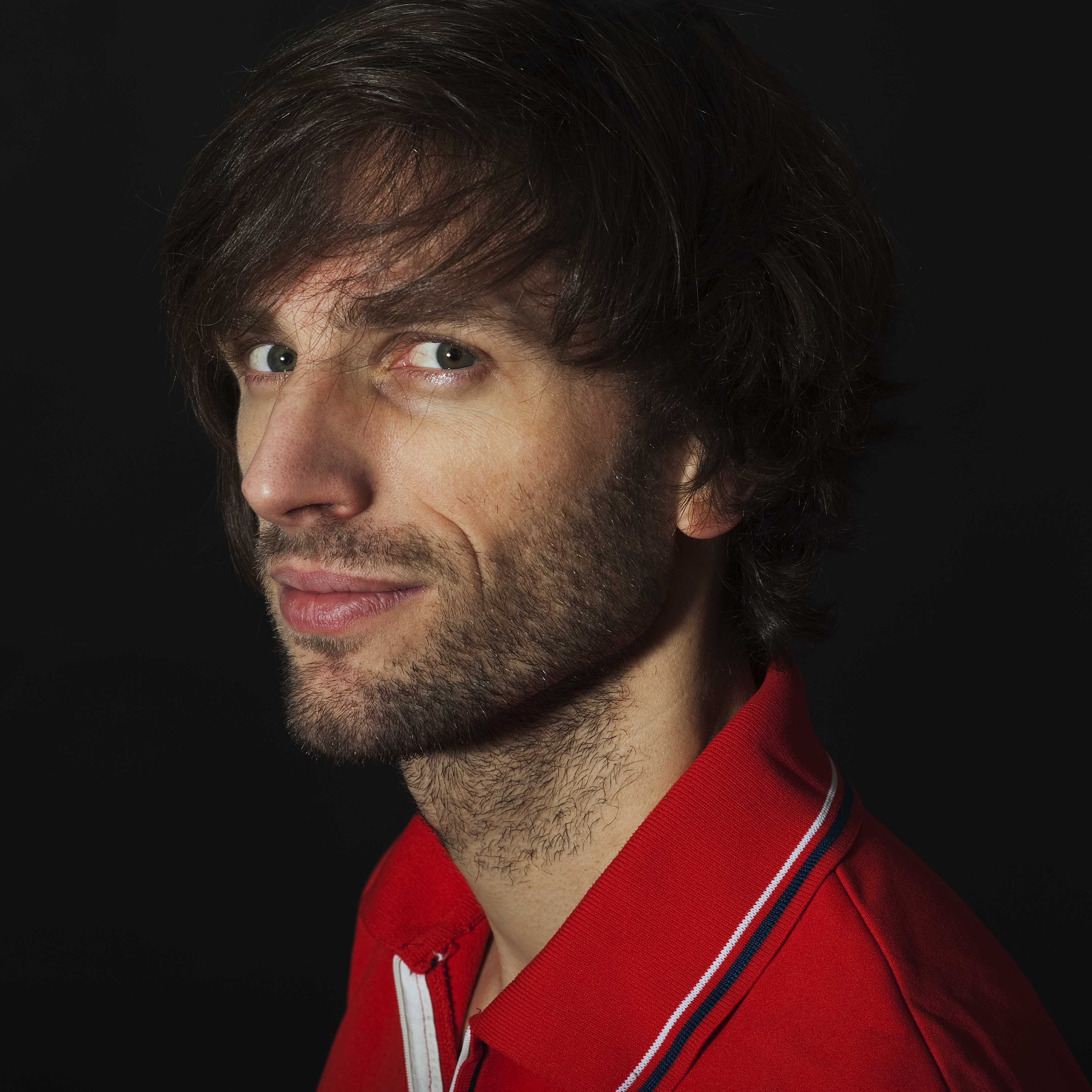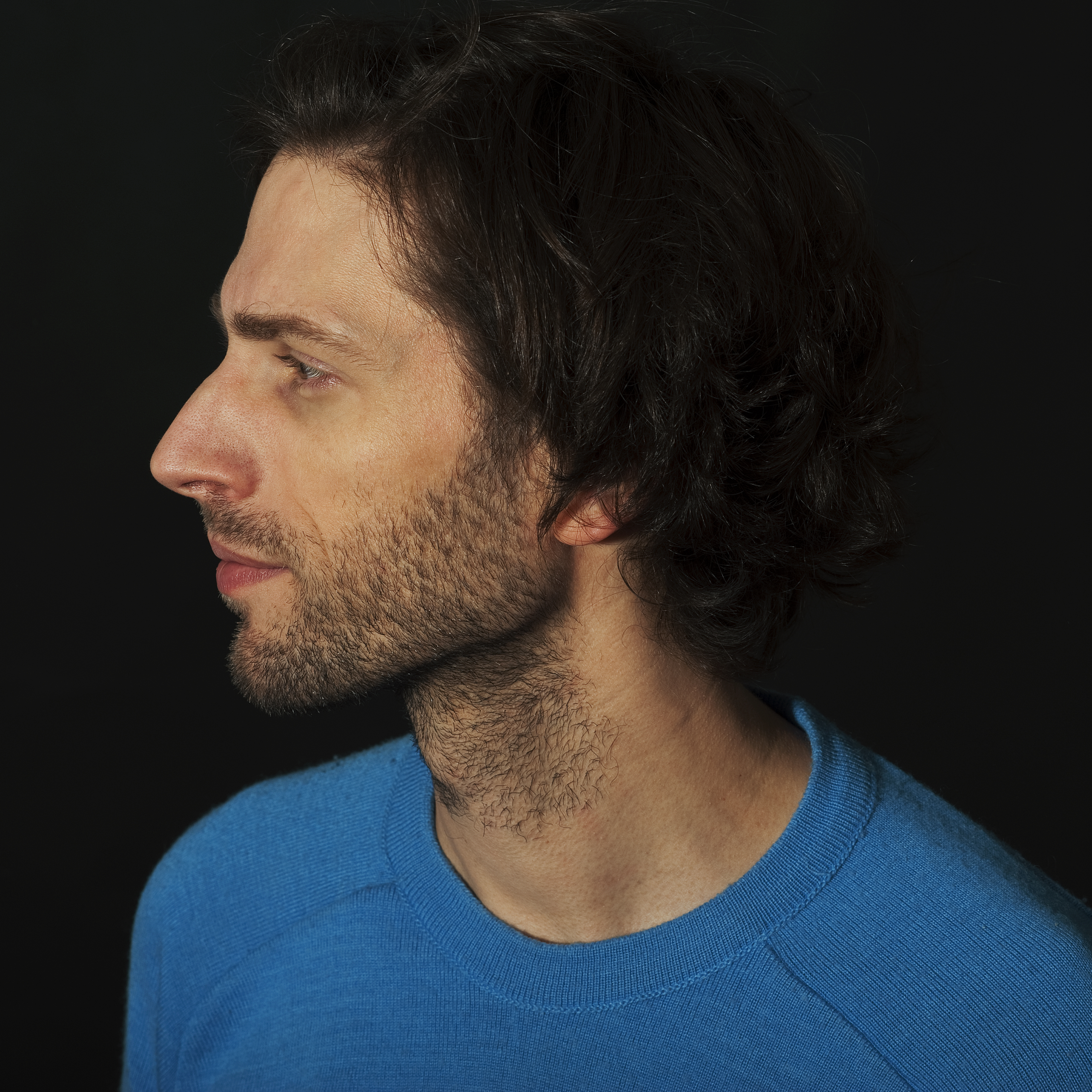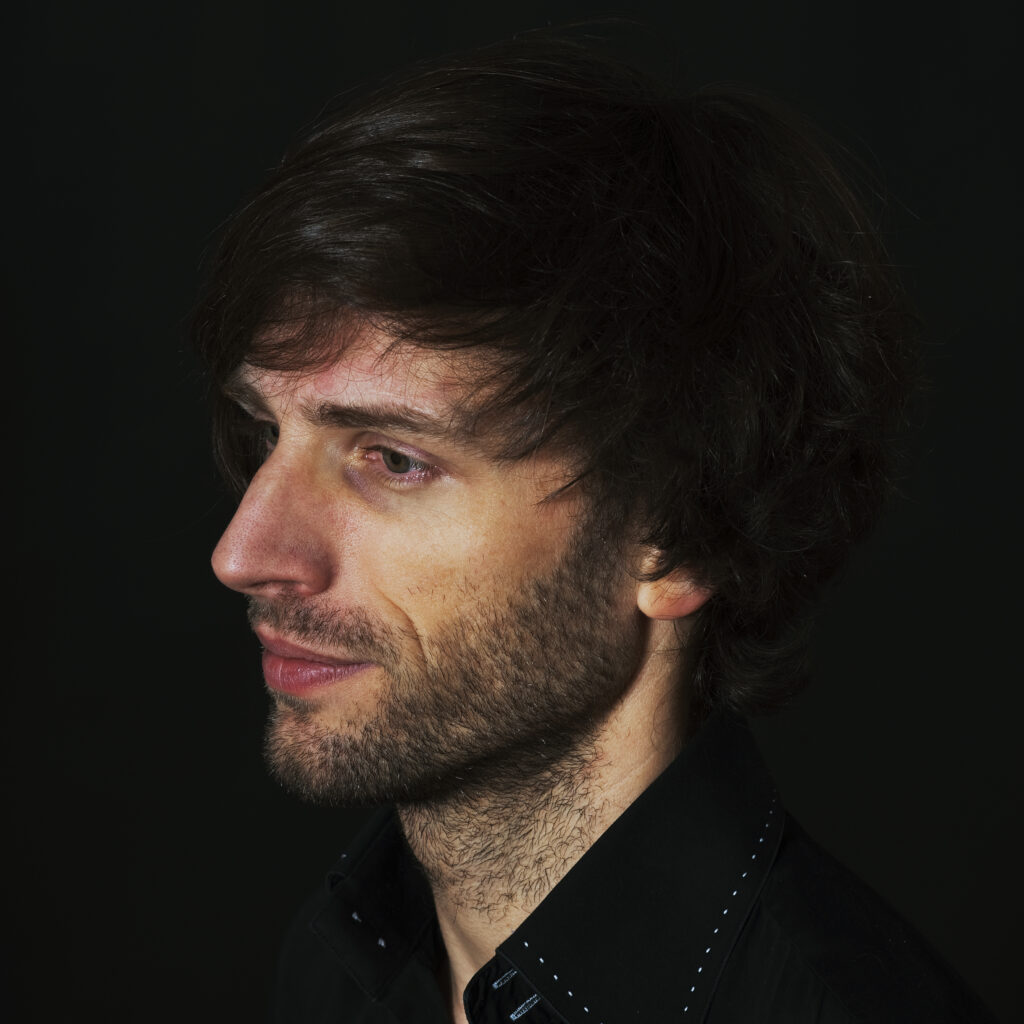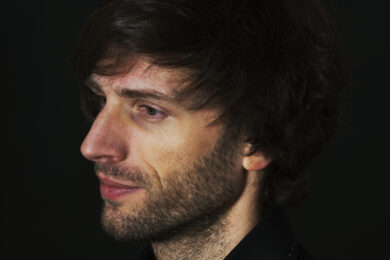It’s impossible to second guess Hans-Peter Lindstrøm – even though everything he does seems natural and organic when you examine it in retrospect. Coming from a background in alt country and indie rock, he certainly didn’t seem like someone who was going to take the dance music world by storm a decade ago; let alone become Norway’s most in demand remixer to the likes of LCD Soundsystem, Roxy Music and Telex, as well as the lynch pin of the neo-cosmic disco scene. Not bad for a “dilettante” who took up DJing, producing and remixing ten years ago “just to see how it was done”.
As well as setting up his own label Feedelity he has been responsible for some landmark releases, including the deep space noodle of ‘There’s A Drink In My Bedroom And I Need A Hot Lady’ (2002), the ecstatic disco of ‘I Feel Space’ (2005) and his essential long player Where You Go I Go Too (2008). And that’s not mentioning his amazing exploratory expeditions with Prins Thomas and his serotonin flooded pop with Christabelle. So when H-PL sings, “Don’t you get that feeling that you’ve been here before?” on ‘Magik’, a cut from his mind-boggling new album Six Cups Of Rebel, the answer is an emphatic, “No.”
Because while this glorious long player isn’t entirely without precedent, before he was only paying lip service, this time he’s fully immersed himself into a self-created mutant hybrid world of cosmic disco, acid house and prog rock. Perhaps it’s understandable then that he seems really unsure of how the record will be received, comparing it to Lou Reed’s Metal Machine Music and Vangelis’ Beaubourg – and not necessarily for positive reasons.
But from the celestial church organ of ‘No Release’ (H-PL used to practice on such an instrument when he was younger) onwards through the Wendy/Walter Carlos synth funk of ‘Magik’ and iridescent acid disco of ‘A Quiet Place To Live’ this album is a thing of joy and boundless fun. And even if it might be his most headphone centric LP to date, you’re never far from a stone cold dance beat. This maybe the furthest out he’s gone so far but where he goes anyone with any sense and taste goes too.

Hans-Peter Lindstrøm: Hi, I’m just in the studio working on something…
That’s interesting, do you always dive from one project straight into the next?
HPL: That’s what I usually do. I do it to clear my mind and start on something new. That’s what I’ve been doing since the Six Cups Of Rebel album. That’s a good thing I guess?
I always get the impression from some of the long tracks that you do and the expansive nature of your music that you must end up with hours and hours worth of unused material.
HPL: Yeah, it is… [laughs] A lot of it is stuff that really shouldn’t see the light of day. The thing is when you use a computer you can just record over it. It’s like when you use a digital camera, you take hundreds and hundreds of pictures but that doesn’t mean you keep everything. Although most people do I guess.
Well, someone on holiday might delete a lot of photos and that wouldn’t matter so much but perhaps if you were a professional photographer you might want to archive a lot of material. I guess what I’m saying is I’m surprised to hear that you don’t archive a lot of your demos and sessions to refer back to riffs, bass lines, ideas…
HPL: Well I’m always saving stuff, unused stuff. Stuff that I was working on at the same time as tunes that ended up on albums but they just didn’t fit in because of the style and I like to think of those tracks in terms of a potential new project so sometimes there is nothing wrong with the song it simply doesn’t fit into the project. There is some good stuff laying on my hard drive just waiting for the right project.
It feels like certain types of dance music have been threatening to head off into a fully blown prog direction for some time now. And regardless of your prog influences in the past it feels like you’ve really kicked the doors open on Six Cups Of Rebel.
HPL: I’ve always been interested in prog music which has weird time signatures and key changes from when I was kid listening to Jethro Tull and some of my family members introduced me to Genesis and Pink Floyd. And while some of my solo stuff and some of my work with Prins Thomas has been a bit proggy in a way, but this one is different because it is saying: “LOOK!” I’m not sure if I’d even call it dance music. I guess very few DJs would dare play it. [laughs] And that wasn’t the intention behind it, I just wanted to make something that would work as an album. When I’m working on an album I’m seeing what happens and I’m looking at what I’m working on and seeing what it’s heading towards. And this is just what this one turned out like. I knew this one was going to be something different from a usual dance album.
Well, you say Jethro Tull and Genesis but this is really a lot more full on than that makes it sound. I mean, say the introduction to ‘Call Me Any Time’ sounds like The Cardiacs to me which is a lot more intense. Do you still listen to prog rock and fusion these days?
HPL: Yeah, I do definitely. What’s really been inspiring for me over the last year has been listening to some of the weirder stuff by Todd Rundgren, especially his 1970s albums, where you might have a weird a cappella track followed by a straight up rock number and then some really far out cosmic noodling which is really cool. In the 1970s he was taking things so far ahead. I really like the idea of making a track with really weird elements but at the same time having some sort of real, traditional song structure in the bottom of it. I like the idea of having a combination of regular music and weird far out music. Some of the Sun Ra music is really great but some of it is too much because it is literally just freaking out but if you combine that with some kind of pop music [laughs] it can be really interesting. I have no idea whether it makes sense to anyone other than me.

I wonder about your background as an indie rock guy. Do you think this means that you’re more likely to attempt unorthodox styles and to mess with sacred cows that perhaps someone who was pure dance wouldn’t?
HPL: Yeah, definitely. There are probably a lot of people from a purely DJ background who do weird stuff as well but for me, when I was introduced to the DJ world, I very soon discovered that there were a set of rules that you have to follow at any given time which tell you what is allowed and what isn’t and you just have to follow them. But then I think I got to a point where I just thought, ‘I’m not too impressed with these rules anymore.’ It’s probably a product of playing a lot of different styles over the years. I don’t think I’m any good at playing anything really. There are people who play all of the instruments much better than me but that’s not the point. That’s not what it’s all about. For me it’s just about getting all of the ideas and mixing them together and seeing what happens. It’s like in anything, I think it’s important to have a versatile background.
You’ve recorded under the name Six Cups of Rebel before and I was just wondering what it referred to.
HPL: To be honest, I don’t really remember. I think it refers to the only bits of poetry that Bob Dylan ever wrote. I was a big fan of Bob Dylan when I was younger and when I was first starting to make music a lot of the song names that I used were taken from that Tarantella collection. I guess I just wanted to honour him for what he has done for me over the years. One of the reasons I wanted to use it as an album title is that the EP I released as Six Cups Of Rebel was something very different from what I had done previously and that is kind of the case now. This album is very different from Real Life Is No Cool and Where You Go I Go Too. It made sense to connect with the past in a way.
Is there anything identifiably Norwegian about your music or the philosophy that informs it?
HPL: I don’t know about that.
How about the track ‘A Quiet Place To Live’?
HPL: I got the chance about a year ago to get a cabin in the woods and I guess I wrote that track when I was thinking about getting a cabin so… I don’t know… maybe I’m just getting old and I need somewhere quiet to go! I guess coming from Oslo, that’s already not as busy or crowded as London or New York but I guess I’m glad I’ve got somewhere to go when that becomes too noisy.
I get the sense you’re worried about the reception of this album.
HPL: I’ve been running my label for a long time now and I always try and work without limitations and to not repeat myself but I think this might be harder for the label. I guess I like it when artists don’t repeat themselves over and over again. I think on this album I’ve gone further out than before but I’m not sure if it’s for the best. [laughs] I’m not sure if it’s a good thing or a bad thing. I’m really happy with the album but I don’t know if it’s… too much. [laughs] I really like Vangelis and I was really excited when I first heard the album Beaubourg, which is basically two long tracks made on the Yamaha CS-80 with a lot of weird ring modulator noise, and it’s just noodling but it’s really far out if you compare it to Chariots Of Fire. I would compare it to Lou Reed’s Metal Machine Music. I think Transformer is a very different album! But they are the sort of artists who will try different weird things when they do their songs and this is the reason why I like them because they are really taking chances. And when I started on this album I was telling myself it was going to be a little bit in that tradition. I mean, I could do something much weirder but I don’t see the point of just doing something crazy that nobody would be able to connect to. But I’m really happy with this and I think I’ve done what I set out to do.
How was it recording the vocals for ‘De Ja Vu’ and will you sing any of these songs live at any point?
HPL: No, I’m not going to do that. I don’t consider myself to be a vocalist. I don’t consider myself as a guitarist or a bass player or drummer either but I’ve been doing it on every album and song since I started, so I’ve always thought, ‘One day I should really use my voice… after all why shouldn’t I?’ It’s one of the most interesting instruments there is and you don’t have to use it in a traditional way. I guess I’ve been too afraid of experimenting and trying it out. I mean, I’m not trying to write important poetry or anything, I’m more interested in repeating very simple phrases. I’m treating my voice like I treat every other instrument I work on like a guitar or keyboard. Using pitch shifters, echo and reverb and making it different to how it sounded when I was recording it.
On ‘No Release’ you’ve got a keyboard that sounds like but in fact isn’t a church organ; didn’t you learn how to play on a church organ though?
HPL: I played on a church organ when I was younger but didn’t play as a church organist if you see what I mean. That came after learning the piano. When I first recorded the track I did it with MIDI and I intended to record it on a church organ but sometimes it is more interesting to do the wrong thing. I mean nothing sounds better than a real church organ but sometimes it is better to use something different. I wanted it to be slightly unreal.
You’ve only been releasing electronic albums for about five years but you’ve already covered a massive amount of ground, so what’s in store, talking as someone who doesn’t like to repeat himself?
HPL: As soon as I started making a living out of making music I realised that it is actually easy just to do what people expect you to do. To do them for money just because you get used to making music for money. I’m interested in carrying on making music as I did when it was my hobby and I would think, ‘Ok, now I am just going to fool around with my synthesizer.’ But even though I do this now for my living I still try and think of my studio as a playground where I can do whatever I want and try out stuff. I’ve been really lucky because I’ve been able to do weird stuff and some people have been interested in listening to and buying my records. But there is so much left to do. I don’t know what but I will try to do something new and different every time. I don’t know if that’s the smart thing to do or the best thing to do. But I want to do it because it’s interesting or fun, I don’t want to end up doing something because I have to.



